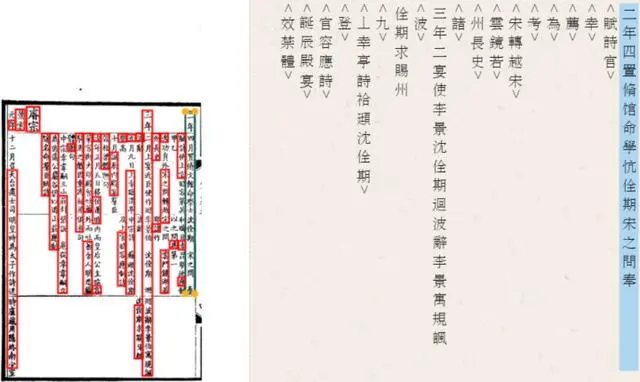Zhejiang University team builds data sharing platform to activate ancient books
From:People's Daily OnlineAuthor: 2023-07-04 13:35
A team consisting of teachers from Zhejiang University in east China has developed a smart data sharing platform which features man-machine interaction and provides data of 44,000 ancient books, allowing users to read ancient books, search for information, and appreciate the beauty of ancient books.
Ancient books available on the platform add up to around 7 million characters, said Xu Yongming, head of the technical team of the project which started in 2020.
"The platform introduces a knowledge graph and uses big data to enable functions such as statistics calculation and information searching, helping readers easily and conveniently find books they look for," Xu explained.
Another platform built by Xu's team, called "the academic map publishing platform," contains various academic maps, including those showing places that more than 500 famous historical figures went to, and a map showing the geographical distribution of authors in the Complete Poetry Collection of Yuan Dynasty.

Optical character recognition (OCR) is used to identify characters in an ancient book. (Photo provided by the interviewee)
The platform has published more than 1,600 academic maps, which have been viewed by 1 million readers from more than 70 countries, Xu said.
The integration of the data sharing platform and the academic map publishing platform has greatly enhanced user experience and promoted readers' understanding of ancient books.
Xu said the use of optical character recognition (OCR), a technology that can identify carved characters with an accuracy rate of at least 90 percent, and another technology that inserts punctuation marks in sentences in ancient books with an accuracy rate of more than 90 percent, has also helped improve the user experience.
To move the project forward, Xu, who has a degree in the liberal arts, established a technical team consisting of more than 20 people, all teachers at Zhejiang University.
At the end of the 1990s, Xu worked in the department of ancient books at Zhejiang University Library, during which he found that it was inconvenient for readers to read and copy ancient books preserved at the library.
While writing his PhD thesis, Xu read ancient books and made a copy of what he might need in completing his thesis. This experience made him realize that preservation and dissemination of paper documents was difficult, and fragmentation and isolation existed in the dissemination of information about ancient books.
"Thanks to rapidly-evolving digital technology, we started to think about promoting the in-depth integration of big data and ancient books to try to explore new ways to carry forward China's excellent traditional culture," Xu said.
To be able to independently solve problems they encountered in developing the academic map publishing platform, Xu taught himself the Python programming language. His team has invited students and experts to join the effort to arrange ancient books.
Xu plans to utilize the smart data sharing platform to further advance the integration and sharing of ancient book resources and activate ancient book resources.
Edit:董丽娜
The copyright of the article and the picture belongs to the original author. If there is any infringement, please contact to delete it